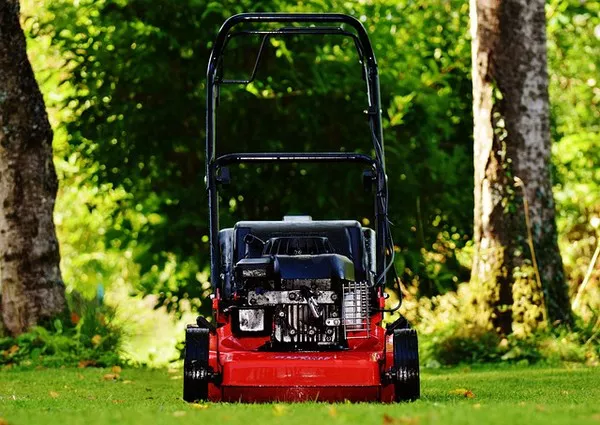Maintaining a pristine lawn requires the right equipment, and selecting the best lawn mower depends on several factors. Whether you’re a homeowner or a professional landscaper, understanding the different types of lawn mowers and their features is crucial for achieving optimal results. In this comprehensive guide, we’ll explore various types of lawn mowers, from traditional gas-powered models to eco-friendly alternatives like electric and robotic mowers. We’ll delve into the advantages and drawbacks of each type to help you make an informed decision about which one suits your needs best.
Gas-Powered vs. Electric: Which is Better?
One of the primary decisions when choosing a lawn mower is whether to opt for a gas-powered or electric model. Gas mowers have long been the standard, known for their power and ability to handle large lawns with thick grass. They are typically more robust and can be used anywhere without the need for a power source. However, they come with downsides such as emissions, noise levels, and the hassle of regular maintenance like oil changes and spark plug replacements. On the other hand, electric mowers, both corded and cordless, are gaining popularity due to their eco-friendliness and ease of use. Corded electric mowers are ideal for smaller yards and are quieter than gas mowers. They require less maintenance but are limited by the length of the extension cord. Cordless electric mowers, powered by rechargeable batteries, offer more mobility and are suitable for medium-sized lawns. They are quieter and emit no harmful fumes, making them an attractive choice for environmentally conscious consumers. However, the runtime is a limitation with some models, and the battery needs periodic replacement after a few years.
Push Mowers vs. Self-Propelled: Which One Should You Choose?
Another consideration is whether to go for a push mower or a self-propelled mower. Push mowers are the traditional choice where the operator provides all the power. They are lightweight, eco-friendly (especially in the case of manual reel mowers), and require minimal maintenance. However, they can be physically demanding, especially on larger lawns or sloped terrains. Self-propelled mowers, on the other hand, have a built-in drive system that propels the mower forward, reducing the effort required from the operator. This feature is particularly useful for navigating inclines or rough terrain. Self-propelled mowers come in both gas and electric variants, with electric models being quieter and easier to maintain compared to their gas counterparts. When choosing between the two, consider the size of your lawn and your physical capabilities. If you have a small, flat lawn and prefer exercise, a push mower might be suitable. For larger areas or if you have mobility issues, a self-propelled mower can save time and effort.
Robotic Mowers: The Future of Lawn Care?
Robotic lawn mowers represent the latest innovation in lawn care technology. These autonomous mowers operate without human intervention, navigating the lawn using sensors and GPS technology. They work quietly and efficiently, cutting grass in a random pattern to maintain a manicured appearance. Robotic mowers are best suited for those who want a hands-off approach to lawn maintenance. They require minimal oversight, continuously trimming the grass and returning to a charging station when the battery runs low. While robotic mowers offer convenience and save time, they come with a higher initial cost compared to traditional mowers. Additionally, they may struggle with complex landscapes, such as yards with narrow passages or obstacles like flower beds and trees. However, as technology advances, robotic mowers are becoming more sophisticated and adaptable, making them an appealing option for homeowners seeking a low-maintenance lawn care solution.
Choosing the Right Features for Your Needs
Beyond the type of mower, consider additional features that can enhance your mowing experience. Look for mowers with adjustable cutting heights to accommodate different grass lengths and seasonal changes. Bagging and mulching capabilities are essential for collecting grass clippings or recycling them back into the lawn as natural fertilizer. Some models offer side discharge options for efficiently managing grass clippings. Consider the ease of maintenance, including blade sharpening, cleaning, and storage requirements. Ergonomic features like adjustable handles and comfortable grips can reduce fatigue during extended mowing sessions. Safety features such as blade engagement controls and automatic shut-off mechanisms are crucial for preventing accidents. Lastly, assess the warranty coverage and customer support offered by the manufacturer to ensure peace of mind and reliable service over the lifespan of the mower.
See Also A Guide to Selecting the Right Gasoline for Your Honda Lawn Mower
Conclusion
Choosing the best lawn mower requires careful consideration of various factors, including lawn size, terrain complexity, environmental impact, and personal preferences. Gas-powered mowers are powerful but come with emissions and noise concerns, while electric mowers offer eco-friendly alternatives with less maintenance. Push mowers are ideal for smaller lawns and provide a workout, whereas self-propelled mowers are suitable for larger areas and reduce physical strain. Robotic mowers offer automation and convenience but are more expensive and may have limitations in complex landscapes. By understanding the pros and cons of each type of lawn mower and considering additional features that align with your needs, you can select the perfect mower to keep your lawn looking pristine throughout the year.

